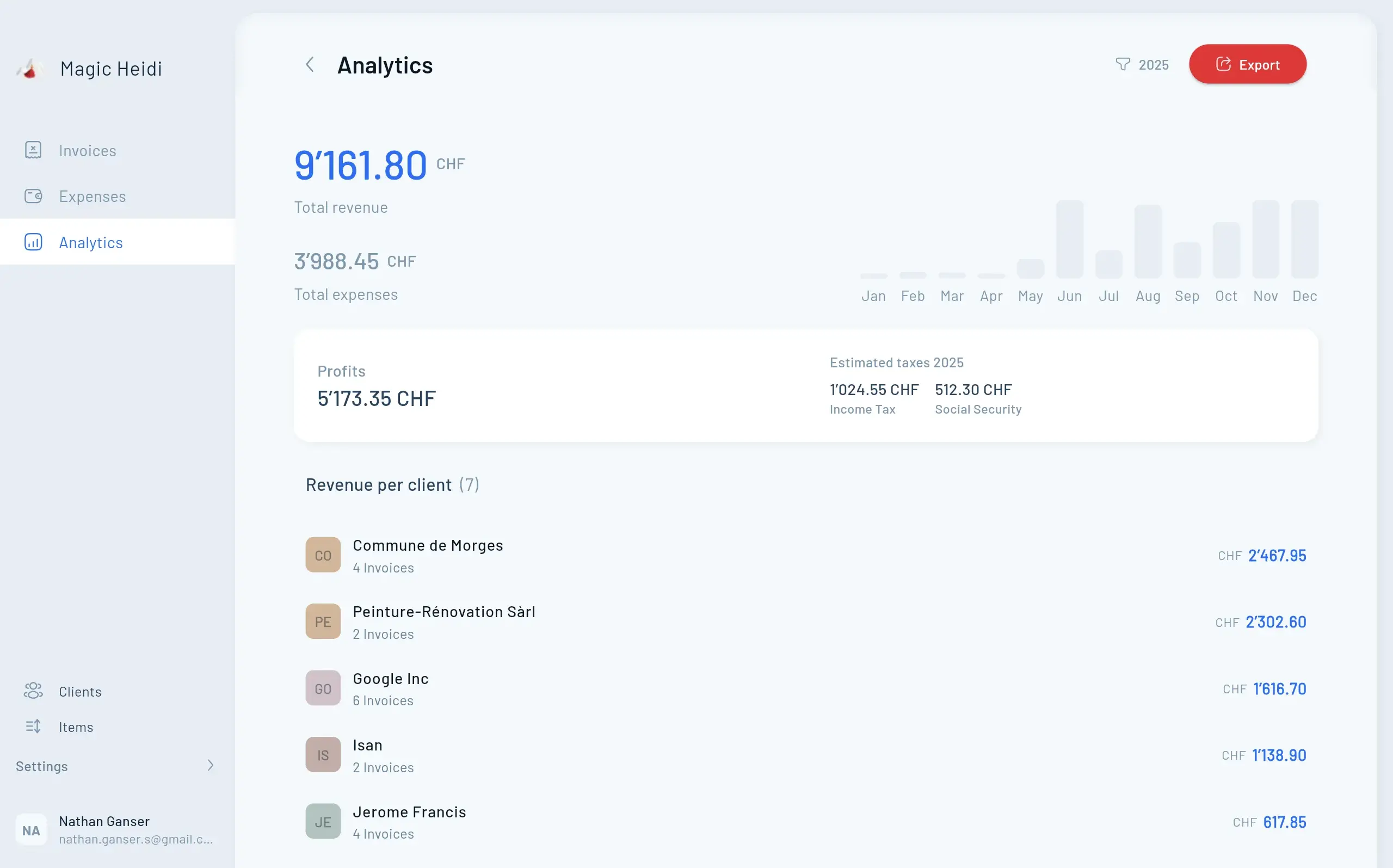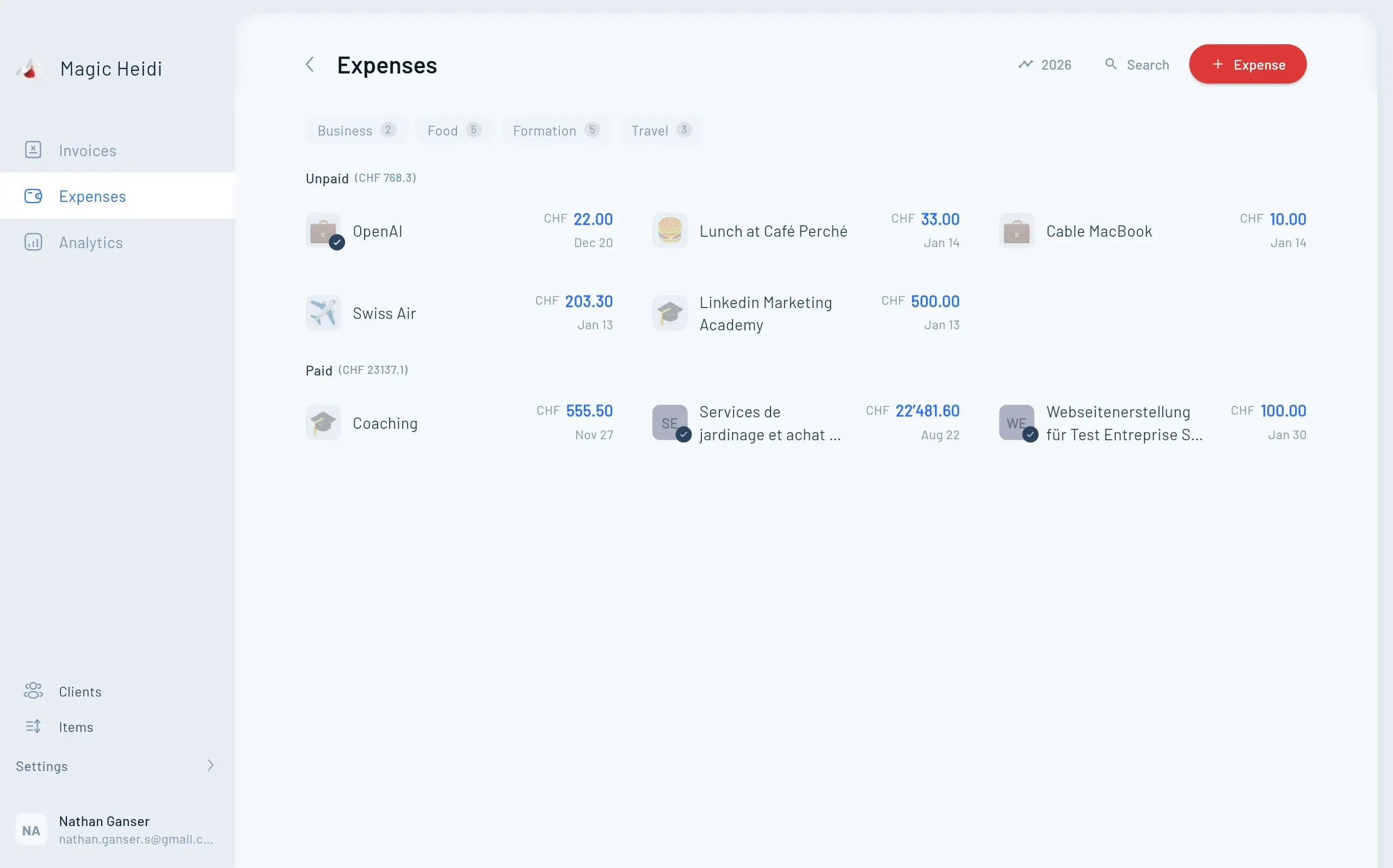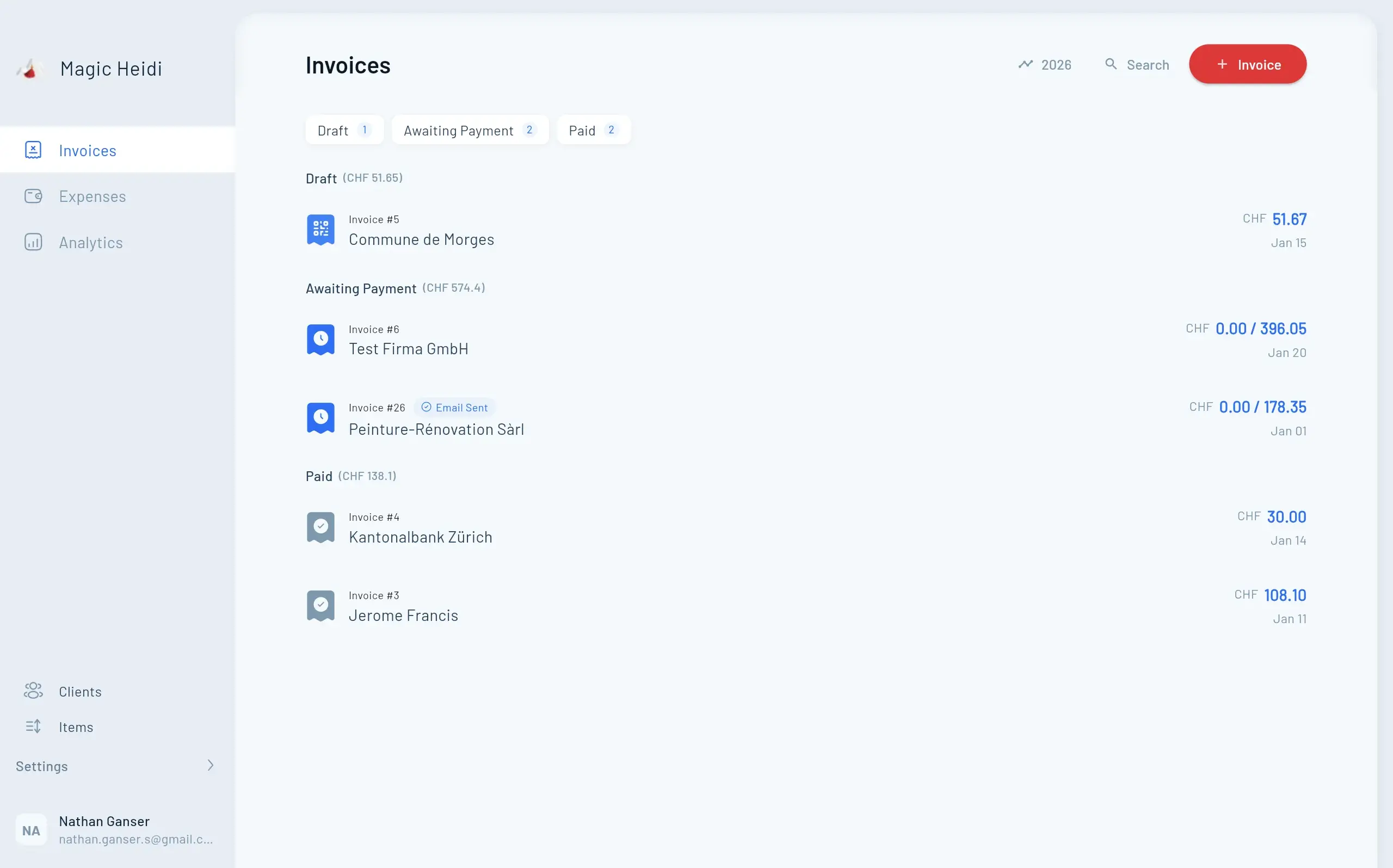Calculate Your Current Position
Use the three ratios to understand where you stand today. Most Swiss freelancers discover they're in better shape than they thought—or identify problems before they become crises.
- Track your assets, liabilities, and income trends
- Calculate Debt-to-Equity, DTI, and DSCR ratios
- Use automated tools for real-time visibility
- Compare against industry benchmarks




